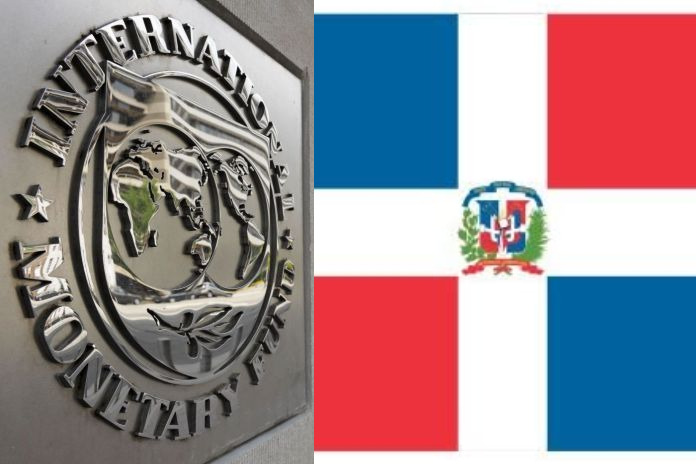- The Dominican Republic’s economy has been one of the most dynamic and resilient in the Western Hemisphere over the last two decades, displaying an impressive recovery from the pandemic, supported by the authorities’ sound policies.
- Tighter global financial conditions, lower global growth, as well as a timely and appropriate withdrawal of domestic policy accommodation have contributed to growth moderation in 2023 that supports inflation’s return to the target range.
- In the near term, policy priorities should remain focused on continuing to ensure macroeconomic and financial stability. In the medium term, further enhancements to policy frameworks, the business climate, governance, and social safety nets can foster more inclusive growth.
SANTO DOMINGO, Dominican Republic – An International Monetary Fund (IMF) team led by Emilio Fernández-Corugedo visited the Dominican Republic from May 8 to May 19 to conduct the 2023 Article IV Consultation discussions.
At the conclusion of the mission, Fernández Corugedo issued the following statement:
“The Dominican Republic’s economy has been one of the most dynamic and resilient economies in the Western Hemisphere over the last two decades. Reforms and good monetary and fiscal policies have strengthened macroeconomic frameworks – including the inflation targeting regime and the introduction of a medium-term fiscal framework – and the banking system, with the ensuing macroeconomic stability attracting sizeable foreign direct investment flows, supporting a more than doubling of per capita income and halving poverty.
These factors have contributed to an impressive economic recovery from the pandemic, which has been supported by the authorities’ sound policies as well as positive global spillovers. The strong recovery began moderating at the end of 2022 in response to tighter global financial conditions, lower global demand, and the appropriate withdrawal of policy stimulus, contributing to inflation’s convergence to its target. The current account deficit widened in 2022 due to softening goods exports, higher commodity prices and the continued domestic demand recovery, and was mostly financed by FDI flows, with the country maintaining sound market access. Despite the recent tightening of global and domestic financial conditions, the financial sector appears adequately capitalized, liquid, and profitable.
“Supported by sound policies and fundamentals, the economic outlook is positive albeit subject to high uncertainty, mostly global. After rebounding strongly, the post-pandemic recovery has moderated, with growth projected to decline slightly from 4.9 percent in 2022 to around 4 percent in 2023, supporting inflation’s return to the central bank’s target. Growth is expected to return to around trend in 2024 as global growth recovers.
The current account deficit is projected to narrow over the medium term driven by lower commodity prices and steady improvements in exports and tourist receipts in line with the global recovery. Global uncertainty around the outlook is high, with downside risks – including from a further tightening global financial conditions and sharper slowdown in global growth – dominating the short run. Medium-term risks are more balanced with key upside ones – mostly domestic – including expanded investment opportunities and fruition of ongoing reforms that may reduce risk premia and boost potential growth.
“Near-term policy priorities should continue to ensure inflation’s return to target, maintain public debt’s downward trajectory while navigating the growth moderation and safeguarding financial stability:
- Policies that seek to bring inflation to target and maintain macroeconomic stability remain appropriate. With inflation projected to decline and inflation expectations anchored, monetary policy should remain data dependent and calibrated to ensure that inflation converges fully to its target over the policy horizon. Exchange rate flexibility and accumulation of reserves, which have reached historically high levels, can continue to play shock-absorbing roles.
- Fiscal policy should remain focused on placing debt on a firmly downward path. Fiscal consolidation, supported by the gradual withdrawal of untargeted support measures in response to adverse shocks and aided by well-targeted measures to support the most vulnerable, can complement the inflation reduction efforts and will be important to build fiscal buffers.
- While the financial sector remains resilient, the current environment of tighter financial conditions requires continued close monitoring, including via continuation of data collection enhancements and macro-prudential analysis of household and corporate balance sheets.
Over the medium term, actions should focus on further enhancements to policy frameworks, the business climate, and social safety nets to strengthen inclusive growth:
- Monetary and exchange rate. Central bank recapitalization will reinforce its autonomy, while a strategy to continue deepening the FX market and expand the use of hedging mechanisms will also enhance the inflation targeting framework.
- Fiscal policy. Additional upgrades to the policy frameworks – including the introduction of a fiscal responsibility law, improvements to public financial management, infrastructure governance and tax administration – alongside efforts to durably increase revenues through broadening the tax base and reducing exemptions can also support fiscal sustainability.
- Financial policy. Further progress is required to modernize the regulatory framework and expand the macro-prudential toolkit. The Superintendency of Banks is already closely monitoring financial institutions’ ability to comply with international standards. Introducing a prudential regulatory framework for unregulated savings and loans cooperatives will also enhance financial stability.
- Structural reforms. Strong efforts to improve public institutions, governance, and the business climate – at the heart of the authorities’ reform agenda – are essential to boost inclusive growth and resilience. The authorities should persevere with electricity sector reforms while ensuring appropriate support for the most vulnerable. Implementation of climate adaptation and mitigation policies under the Nationally Determined Contribution action plan should continue to curb vulnerabilities.
The mission met with Central Bank Governor Héctor Valdez Albizu, minister of finance José Manuel Vicente Dubocq, other senior officials, and representatives of the civil society and the private sector. The mission expresses its sincere thanks to the authorities for their exceptional hospitality, full cooperation, and open and frank dialogue.”
IMF Communications Department





